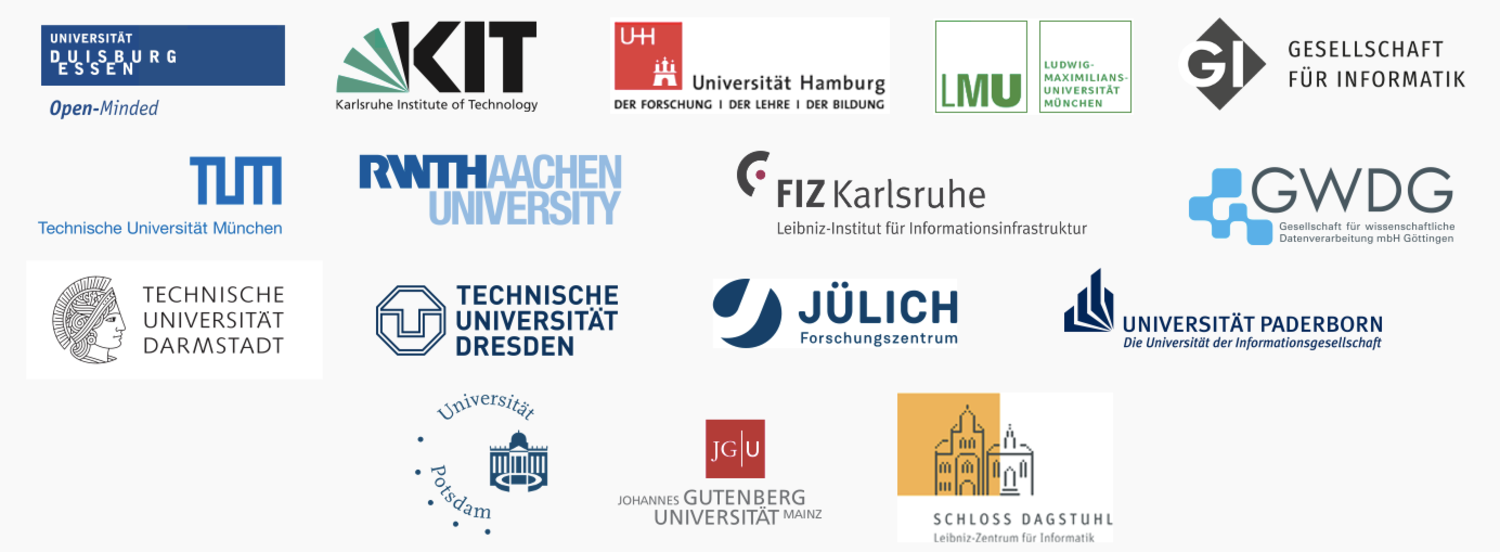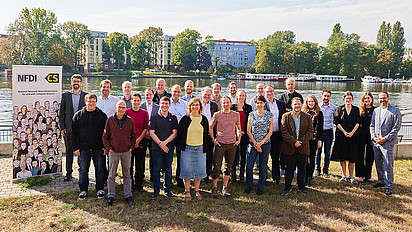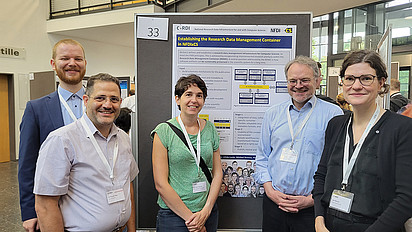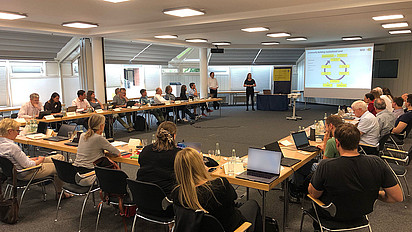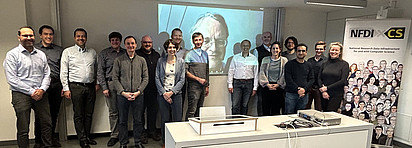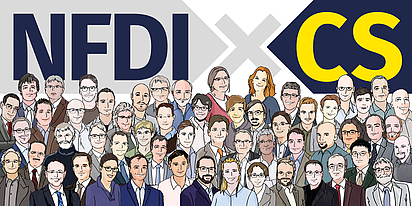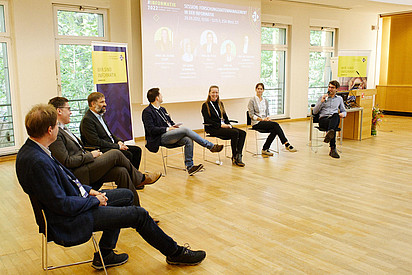National Research Data Infrastructure for and with Computer Science (NFDIxCS)
The main goal of the consortium NFDIxCS is to identify, define and finally deploy services to store complex domain specific data objects from the specific variety of sub-domains from Computer Science (CS) and to realize the FAIR principles across the board. This includes to produce re-usable data objects specific to the various types of CS data which contain not only this data along with the related metadata, but also the corresponding software, context and execution information in a standardized way. These data objects can be of any size, structure and quality. Specifically, we’re addressing the following issues:
- NFDIxCS will promote the implementation of the FAIR data principles for CS research data and software artifacts, simplify the citation of software and CS data, and thus modernize the publication processes and culture of both CS and its applications. NFDIxCS provides a forum for the discussion of CS research data formats, metadata formats and semantics. It will work towards generally accepted standards, in particular for the sustainable storage, retrieval and availability of CS research data.
- NFDIxCS will, in collaboration with other scientific disciplines, support the application of CS methods such as Big Data, Artificial Intelligence and Machine Learning. In addition, the operation of such systems generates large amounts of data, e.g. in the areas of high performance computing and computer architecture, which in turn will contribute to the further development of genuine CS methods.
- NFDIxCS will share the experience and knowledge of the CS community on system architectures, processes, standards for interoperability, data-oriented scientific publication and communication systems with all interested scientific disciplines / consortia in the NFDI family.
The key principle in NFDIxCS is to assemble an organizational and technical, cooperative and interoperable infrastructure to join the available forces of relevant services and actors from and for CS. For this purpose, we use a qualitative content analysis to empirically derive the requirements of the subdisciplines from their profile descriptions and transfer these into a service infrastructure. The developed services will be designed for sustainable operation. This is accompanied by targeted means of community development, i.e. to drive a cultural change, to support young academics, to negotiate practices and norms, and to develop the competencies for a responsible treatment of research data. The existing structure of the GI (Gesellschaft für Informatik) – comprising related specialist groups and communication channels – in combination with other partners at a national, European and international level will provide the organizational core for these efforts.
News
Co-Applicants
